

Tao Te Ching
Search Sages
Enter all or part of an sage's name or biography in the fields below, then press tab or enter to filter the list of Authors. Click the headings Name or Biography to sort by that column. Diacritics are ignored when searching.
Click on the author's name to go to their page.
| Author Name | Biography |
|---|---|
| Dzigar Kongtrül Rinpoche | 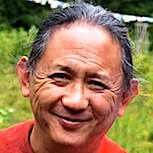 Dzigar Kongtrül Rinpoche Dzigar Kongtrül RinpocheTibetan tulku, buddhist lama, abstract expressionist painter, motorcyclist, and Pema Chödrön’s main teacher; Dzigar Kongtrul Rinpoche has called creativity “the essence of everything.” He continues a powerful rimé or non-sectarian movement that started in 19th century Tibet and promotes a blending of traditions, an appreciation of diversity, and an opposition to any kind of dogmatic narrow-mindedness or chauvinistic attitudes. Often in solitary meditation retreat but also frequently and widely traveling the world, Rinpoche stands out as one of the main modern influences continuing our tradition of Wisdom Beyond Words. |
| Dzogchen Pönlop | 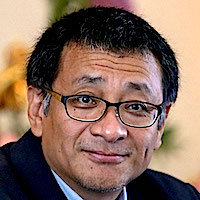 Dzogchen Pönlop Dzogchen PönlopDzogchen Ponlop Rinpoche རྫོགས་ཆེན་དཔོན་སློབ་རིན་པོ་ཆེ། (1965 - ) |
| Dzongsar Khyentse Rinpoche | 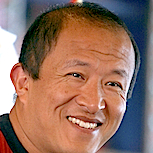 Dzongsar Khyentse Rinpoche Dzongsar Khyentse Rinpoche"Activity" incarnation of Jamyang Khyentse Wangpo Filmmaker, writer, Tibetan lama, and active philanthropist; Dzongsar Rinpoche continues the traditions of the ecumenical Rimé school that began in the 1880s and of Dzongsar Khyentse Chokyi Lodro’s emphasis on bringing Tantric Buddhism to the West. The son of famous lama Thinley Norbu and grandson of Dudjom Rinpoche, he was a close student of Dilgo Khyentse. His philanthropic work began with a focus on the education, health and safety of exploited women and children in India and Cambodia and has spread around the world into a global volunteer network now strong in many countries. His 4 popular and award-winning movies entertain, educate, and spread insight into the timeless wisdom and compassion of realization. |
| E. F. Schumacher |  E. F. Schumacher E. F. SchumacherThe “People's Economist” While working in Burma during the mid ‘50s, Schumacher developed a set of principles he called “buddhist economics” — emphasizing the idea that people need good work for proper human development. Traveling through many Third World countries, he helped governments create self-reliant economies based on local resources and needs. A pioneer and instigator in creating a philosophy of “appropriate technology,” and known as the “People's Economist,” his economic theory based on wisdom instead of only materialism, became one of the most serious alternatives to the dominant economic theories based on Adam Smith and John Maynard Keynes. |
| Edgar Allan Poe | 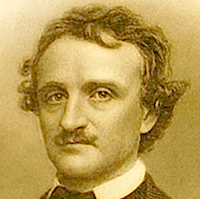 Edgar Allan Poe Edgar Allan PoeEdgar Allan Poe (1809 – 1849) |
| Edith Hamilton | 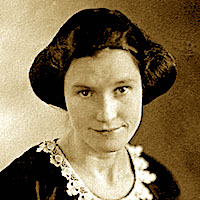 Edith Hamilton Edith HamiltonHistorian, professor, translator, mythologist, and classicist; Edith Hamilton wrote insightful, best-selling books on mythology, Greek, and Roman culture. Her younger sister became the first woman on the faculty at Harvard University and Edith received Greece's highest honor, the Golden Cross. John F. Kennedy consulted with her and Robert F. Kennedy quoted her in his speeches. An educator most of her life in change of the only private US high school for women that prepared all of its students for college, she began her second career as an author publishing her first book, The Greek Way, when she was sixty-two. A biographer, her life was "ruled by a passionately nonconformist vision.. her strength and vitality, her appeal as public figure and author." |
| Edward Fitzgerald | 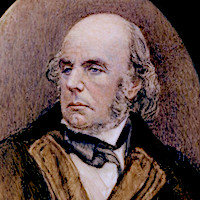 Edward Fitzgerald Edward FitzgeraldFirst and most famous Rubaiyat of Omar Khayyam poet/translator |
| Edward Gibbon | 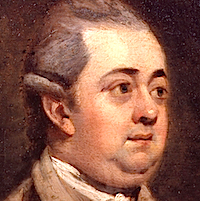 Edward Gibbon Edward GibbonOne of history’s most important historians, Gibbon made groundbreaking contributions to our understanding of not only the Decline and Fall of the Roman Empire but to the factors that help or hinder the rise and fall of all countries, governments, and civilization itself. From an objective perspective that appreciated the civilizing influence of religion while maintaining a skeptical, non-believing openness; he examined the impact of Christianity and organized religion on a free. healthy, diverse society. His conclusion was that while they addressed deep psychological needs, they easily become subservient to political power and their main influence undermined the evolution and establishment of a sane and just society. |
| Edward T Chʻien | 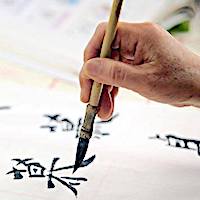 Edward T Chʻien Edward T ChʻienChiao Hung and the restructuring of in the late Ming |
| Edward Wagenknecht | 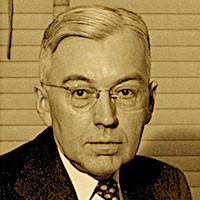 Edward Wagenknecht Edward WagenknechtProfessor and literary critic |
| Edwin Arlington Robinson | 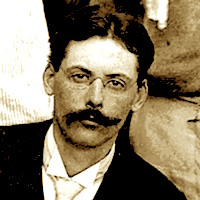 Edwin Arlington Robinson Edwin Arlington Robinson |
| Elbert Hubbard | 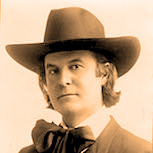 Elbert Hubbard Elbert HubbardTraveling soap company salesman who invented the “leave on trial” technique, philosopher, artist, trouble-maker and writer; Hubbard identified with the Thoreau, Whitman, Tolstoy lineage and distilled this philosophy in his famous essay, A Message to Garcia. Often mocked for "selling out,” convicted for circulating "obscene" material but pardoned by Woodrow Wilson; he seemed to live his famous adage, “When life gives you lemons, make lemonade.” He blended philosophy and business, idealism and practicality stretching into the wisdom beyond words. Survivor of the Titanic sinking, he died along with his wife in stoic acceptance on a different ship sunk by a German submarine. |
| Eleanor Roosevelt | 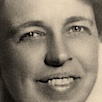 Eleanor Roosevelt Eleanor RooseveltLongest-serving First Lady in the history of the United States, Eleanor was mentor and guiding influence behind her powerful and famous husband, blending his charisma with her wisdom. Though a terrified introvert, she was the first First Lady to be on talk radio, address a national convention, hold a press conference, write a newspaper column and averaged 150 lectures a year throughout the 50’s. She championed civil rights, women’s rights, helped write the Universal Declaration of Human Rights and became chairperson of the UN Commission on Human Rights. Called the “First Lady of the World” by Harry Truman, she received thirty-five honorary degrees and two of her speeches are on the Top 100 Speeches of the 20th Century. |
| Elie Faure | 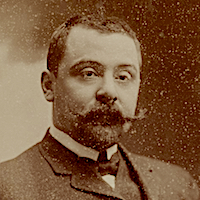 Elie Faure Elie Faure French art historian and essayist |
| Elizabeth I | 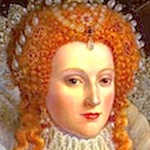 Elizabeth I Elizabeth IThough far from a sage or saint, Elizabeth began her reign with England reviled and powerless but left it 45 years later rich and strong. Called by historians “The greatest ruler England has ever had,” she was patron to Shakespeare, Bacon, Marlowe, and Drake launching the scientific revolution and a golden age of progress and learning. Excommunicated by Pope Pius V, she believed that faith was personal, became “mother of the Church of England.” She opened up trade with the Islamic Ottoman Empire, and helped end the Vatican’s power over all Europe. Though stained by abuses in Ireland, she listened to popular sentiment and advice dedicating her life to her country and people becoming a symbol for good government and resistance to foreign threat. |
| Elizabeth Taylor | 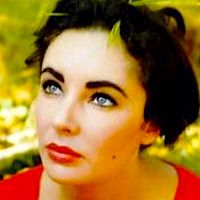 Elizabeth Taylor Elizabeth TaylorChild, teenage, and adult star in over 50 films, fashion icon, humanitarian, and business woman; Taylor won two academy awards, and was named 7th-greatest AFI female screen legend. She became famous when only 12 and stayed that way her entire life. Her fame led to some decadence and instability, 8 marriages, falling in love with jewelry, a jet-setting life stye, drug and alcohol addiction; but, she handled fame better than most, became one of the first HIV/AIDS activist celebrities convincing her friend, President Ronald Reagan to for the first time acknowledge the disease and start doing something about it. A born-Christian, Jewish convert, she devoted much of her philanthropy to Israel and Jewish causes. She married John Warner, helped him get elected to a 5-term Senate Seat, and for a time—until it became too boring—a Washington DC politician’s wife. |
| Ellen Craft | 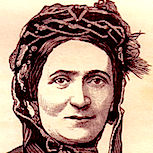 Ellen Craft Ellen Craft A slave secretly married to a slave with a different master and fearing their forced separation, Ellen (at least ¾ European) cut her hair short and disguised herself as a white man traveling with his servant who was really her husband. The elaborate disguise included facial bandages and a sling so she wouldn’t have to sign papers since she couldn’t read or write. She had to act a different gender, race, and social class. After many days traveling by train and steamer they arrived safely in the north and then - fearing slave hunters - went on to England where they wrote a popular account that became an important influence for abolition. After the war, they returned to Georgia and started an agricultural school. |
| Emanuel Swedenborg | 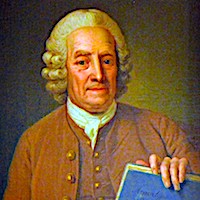 Emanuel Swedenborg Emanuel SwedenborgScientist, mystic, influential philosopher A scientist, philosopher, theologian, inventor, and mystic; Swedenborg began his career as a genius-level scientist and later—detesting the materialism of his academic life—experienced visions and became a highly influential and mystical theologian. He was the first to identify nerve cells, identify the brain's cortex, and pioneered many discoveries in magnetism, phosphorescence, and brain function. His mystical visions described visits to heaven and hell, conversations with spirits from the moon, the planets in our solar system as well as with those from planets further away. His influence spread throughout Europe and into modern times through figures like William Blake, Coleridge, Emerson, Browning, and several Christian denominations. |
| Emily Dickinson | 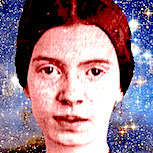 Emily Dickinson Emily DickinsonThough now considered one of the greatest figures in American literature and one of the most important poets, only a few of Dickson’s poems were published during her lifetime and those were significantly edited and changed by publishers. Her first collection wasn’t printed until years after her death and a complete collection wasn’t published until 1955. A serious student of botany, she made and maintained a vast collection of plants; highly introverted, creative, unique, and challenging the assumptions of her time; she seldom left her house but wrote 40 volumes of almost 1800 poems. |
| Empedocles | 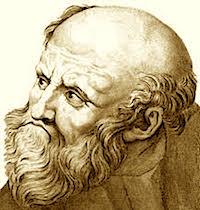 Empedocles Empedocles"The father of rhetoric"—Aristotle Empedocles Ἐμπεδοκλῆς (490 – 430 BCE) |